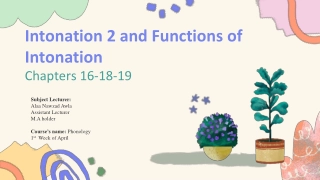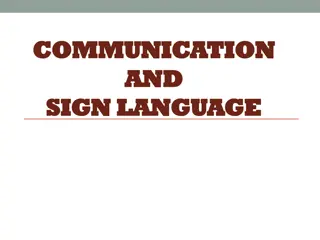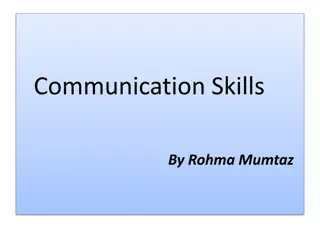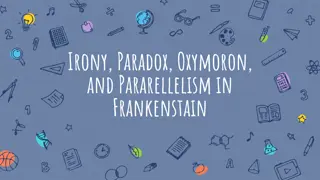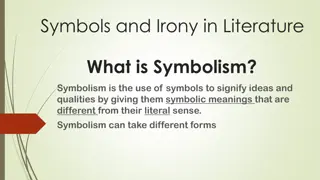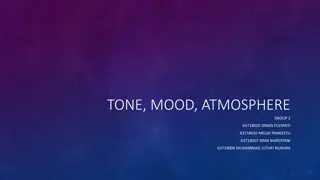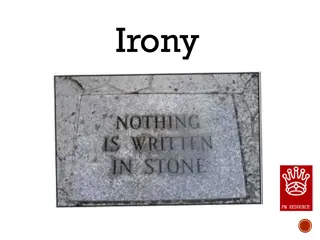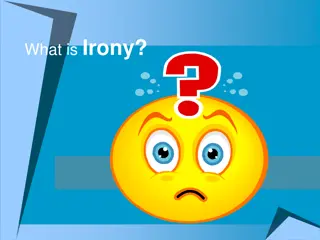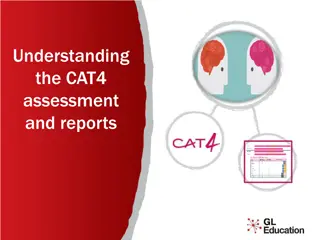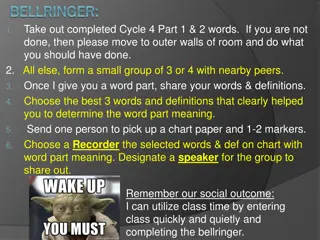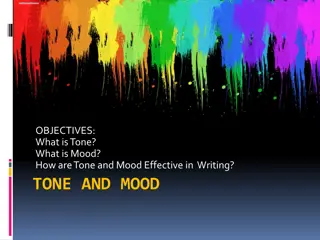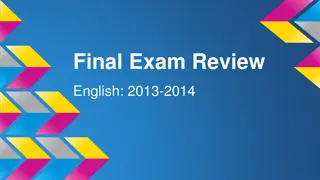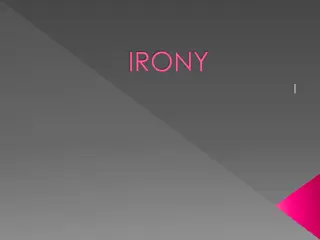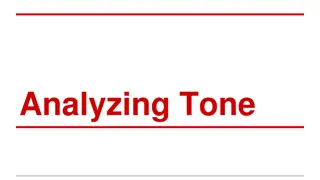Understanding Verbal Irony and Tone Through Examples
Verbal irony is the expression of words conveying the opposite of their literal meaning. It is not the same as lying and is used to emphasize a point. Tone plays a crucial role in conveying irony, as it can affect how the message is perceived. Sarcasm, though related, has a negative agenda of mocking or belittling. This content provides examples and explanations to help students grasp verbal irony and tone differences effectively through skits and scenarios.
Download Presentation

Please find below an Image/Link to download the presentation.
The content on the website is provided AS IS for your information and personal use only. It may not be sold, licensed, or shared on other websites without obtaining consent from the author. Download presentation by click this link. If you encounter any issues during the download, it is possible that the publisher has removed the file from their server.
E N D
Presentation Transcript
Cool story, bro. What a shame. You re the worst. VERBAL IRONY AND TONE
OBJECTIVE Students will be able to understand verbal irony and tone by 1. Taking notes 2. Participating in a skit
VERBAL IRONY What is it? verbal irony is an expression of words that convey the opposite of what one means. It is important to understand that saying the opposite of what you mean is not the same as lying. Why use it? Verbal irony is used to amplify a situation. When someone chooses to use irony, their goal is to emphasize a specific point. In order for any type of irony to be successful, the intended audience must be able to recognize the difference between what is being said, and what is expected. Irony is the difference between expectation and reality. To be exact,
WHAT DOES IT LOOK LIKE? - Two people are talking about their accomplishments. Person one asks, Hey, didn t you just run a marathon? The second person replies, Yeah, its no big deal . The second person s response is a great example of irony. Typically when someone talks about completing a marathon, it is expected that other people will find that impressive; marathons are a lot of work. When the second person says that it s no big deal, they aim to emphasize the idea that marathons are not easy. - You and your family went to the lake over the weekend and while you were there, your dog went swimming. You explain to your friend that on the way back home you had to smell wet dog for four hours. You friend might respond by saying, Sounds fun . Your friend knows that the smell of wet dog isn t pleasant. They also understand that sitting in a car with a stinky dog isn t actually a good time, but they chose to describe it as fun to amplify the unfortunate scenario.
TONE AND HOW IT EFFECTS IRONY Tone is the attitude of a speaker or writer about a topic. Tone gives voice to words and phrases and can often change their meaning depending on the kind of tone the speaker chooses. Depending on a person s tone of voice, verbal irony may sound sarcastic. A person s words can be both ironic and sarcastic, but the two are not synonymous. The goal of sarcasm is slightly different than that of irony. We know that irony is used to emphasize a point, or amplify a situation. Sarcasm, however, has a negative agenda. When someone is using sarcasm, they aim to mock or belittle someone or something.
LETS PRACTICE! Each table has a slip of paper with a scenario written on it. The goal of this activity is to see if we can detect the difference between irony and sarcasm through the use of tone. So, as a group, come up with both an ironic and sarcastic response. Each group should have two responses. They can be completely different, or they can be the same response said in different tones. After you ve come up with your responses, you ll present them to the class and we ll try to guess whether the response was intended to be ironic or sarcastic.


